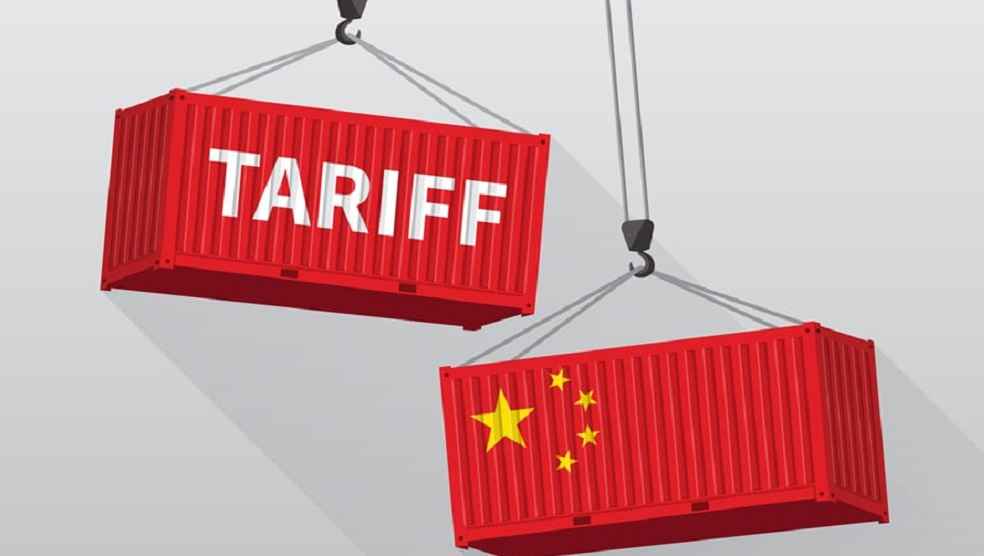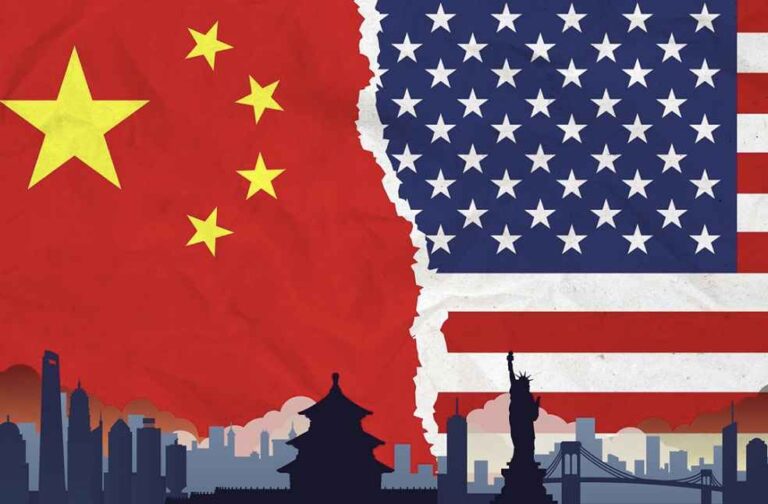China declared a 34% tariff on all U.S. imports on Friday in response to trade measures imposed by President Donald Trump. China’s State Council has stated that the new tariff will take effect on April 10, intensifying trade tensions.
As a part of its retaliatory actions, Beijing has revoked the export privileges of six U.S.-affiliated companies, preventing them from sending sorghum, poultry products, and poultry bone meal to China.
The measures are expected to primarily affect U.S. agricultural exports, such as soybeans, wheat, and corn. China remains a major importer of other key U.S. goods, including pharmaceuticals, crude oil, petroleum gas, and liquefied natural gas.

In a separate move, the Ministry of Commerce included 16 U.S. entities on its ‘unreliable entities list’ and prohibited Chinese firms from supplying them with dual-use items that have both civilian and military uses. These entities operate in sectors such as defense, aerospace, drone production, intelligence, and logistics.
Among those blacklisted is the Coalition For A Prosperous America, a trade-protectionist advocacy group. The Ministry stated that these organizations’ actions may threaten China’s national security and interests, mandating an immediate halt to any ongoing exports of dual-use goods.
China’s Commerce Ministry also revealed that it has lodged a complaint with the World Trade Organization, challenging the 34% tariff by Trump earlier this week. According to the U.S. Trade Representative, the United States imported goods worth $438.9 billion from China last year, while its exports to China totaled $143.5 billion.

The 34% tariff on Chinese imports will raise the average U.S. tariffs on Chinese goods to 76%, as analyzed by the Peterson Institute of International Economics. Beijing, which had previously viewed such high tariffs as extreme, strongly criticized the new measures. It stressed that the latest round of U.S. tariffs violates international trade regulations and harms China’s legitimate rights and interests.
The Commerce Ministry further disclosed plans to initiate an anti-dumping investigation into medical CT X-ray tube imports from the U.S. and India. Additionally, the ministry will also control imports of rare earth elements such as samarium, gadolinium, terbium, dysprosium, lutetium, scandium, and yttrium from U.S.
IMEX SECTOR | Mongolia to Export 367 Goods Duty-Free to EAEU Member Countries from



